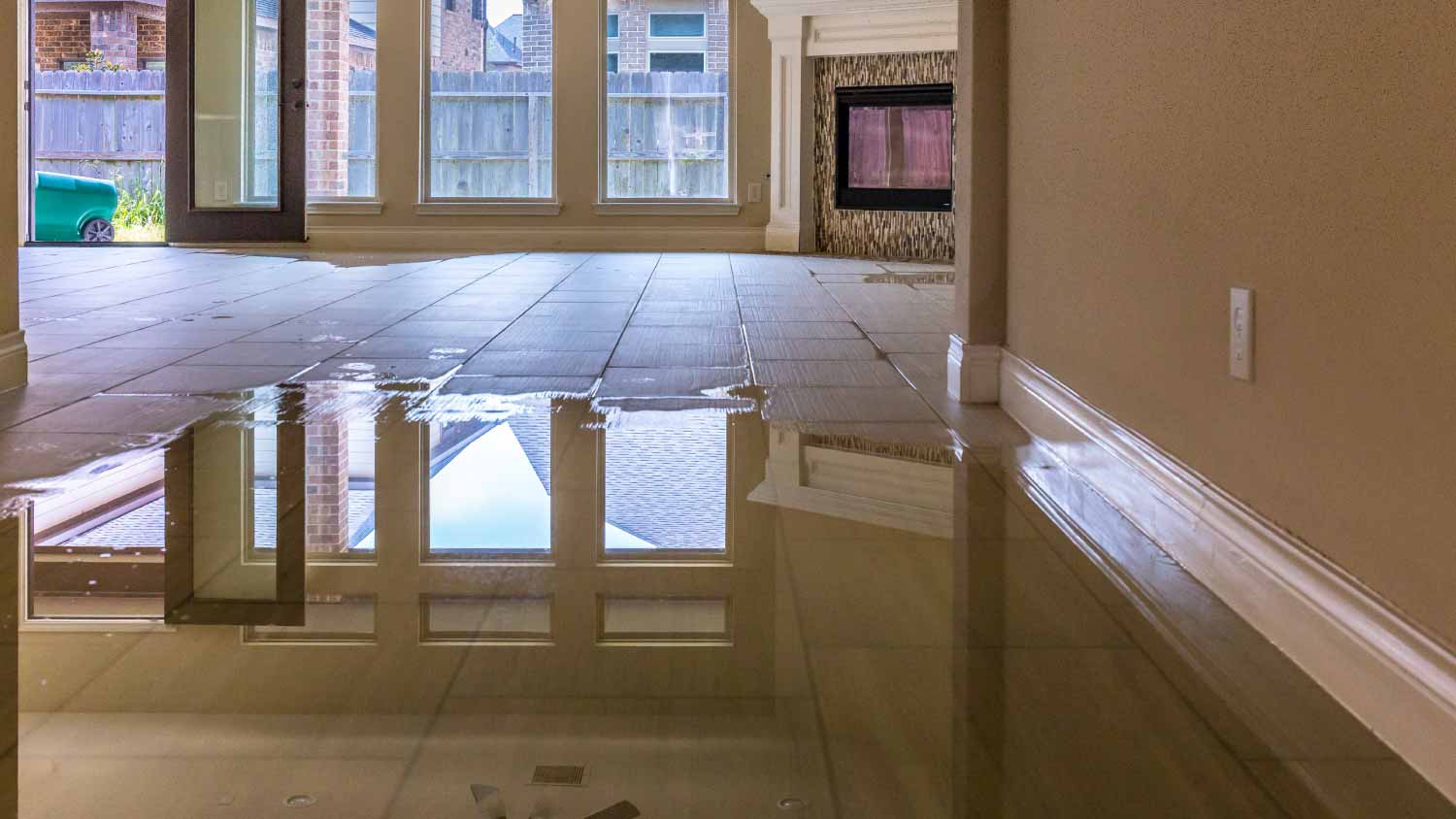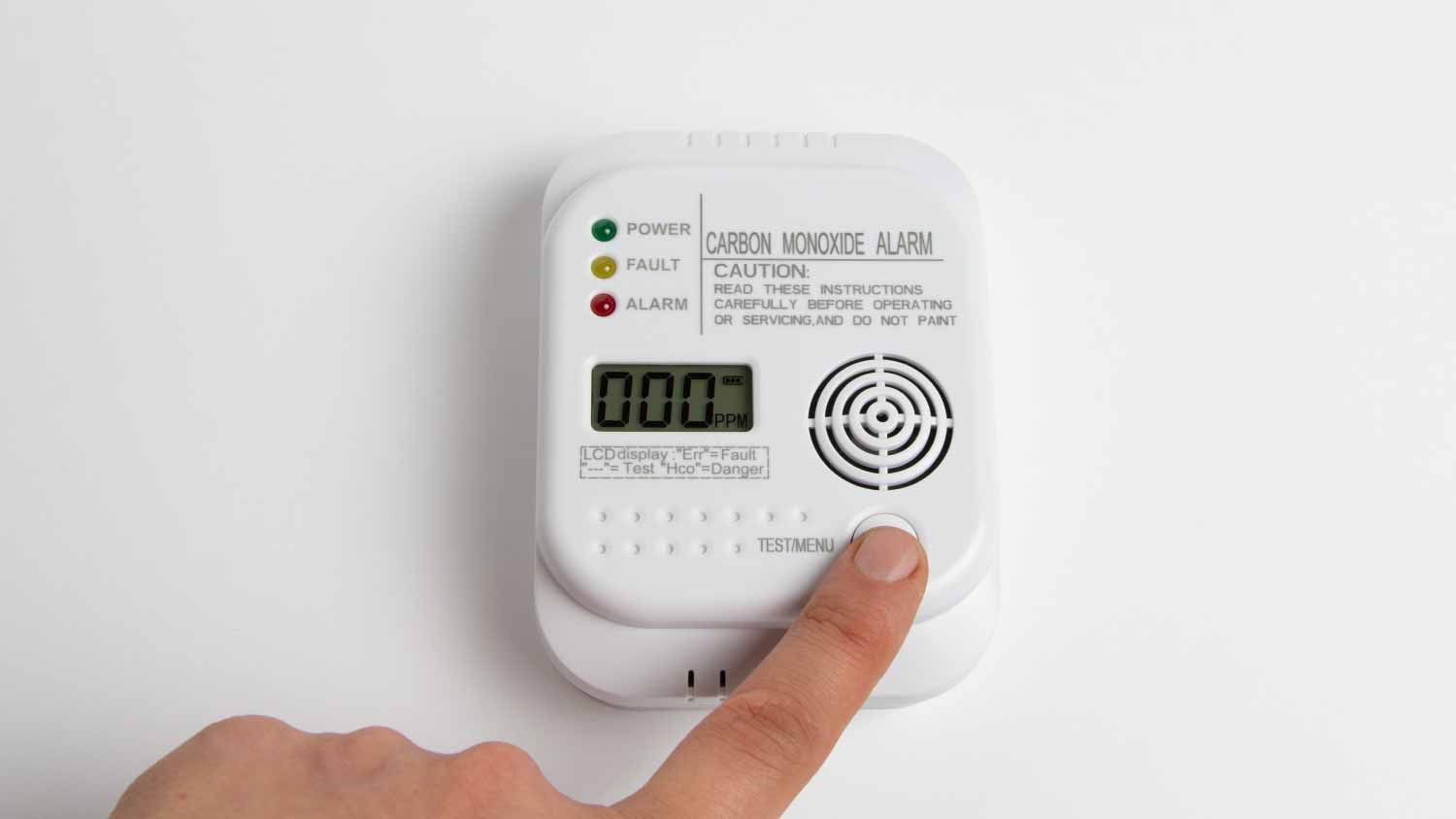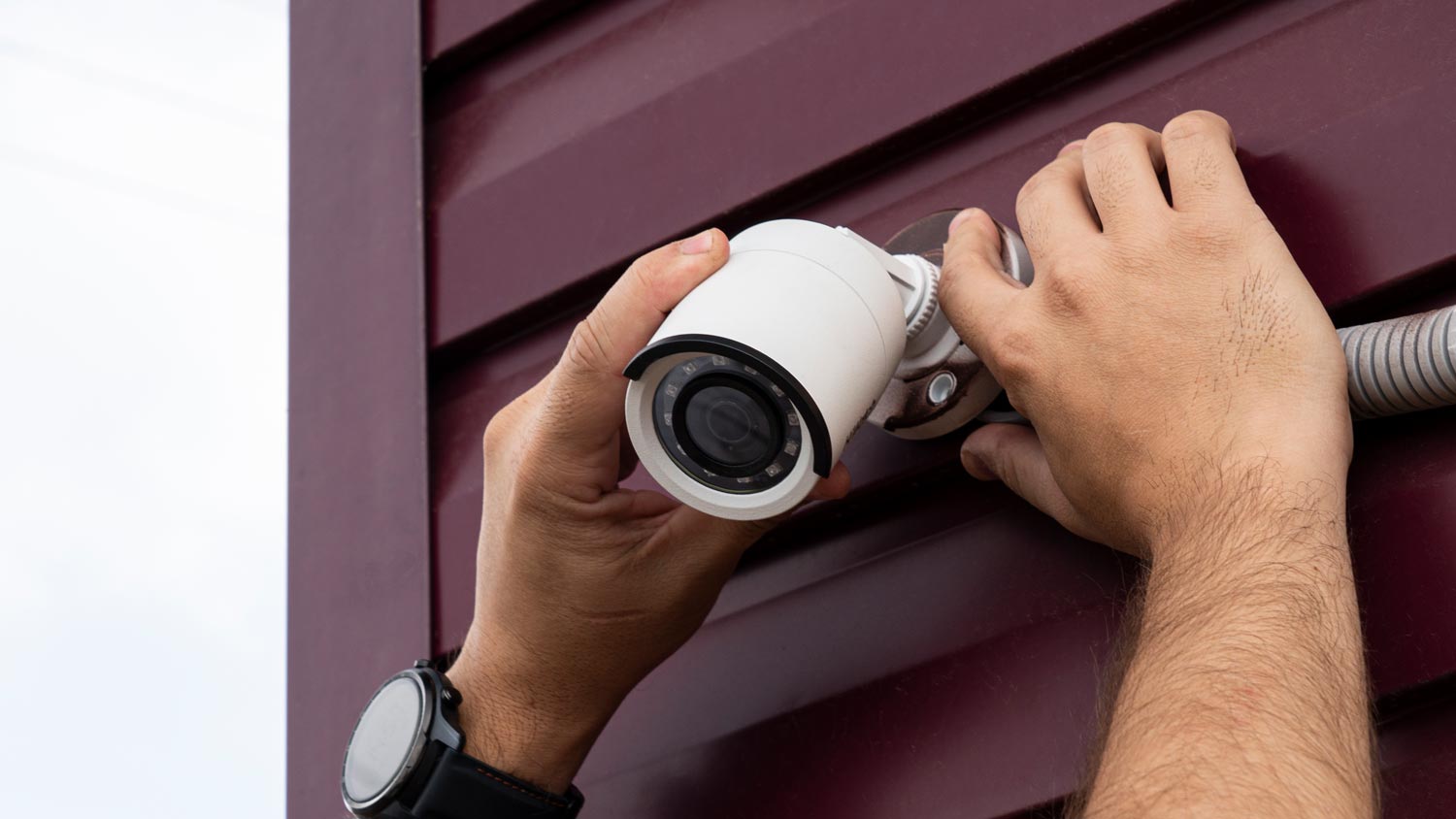What Is a Water Alarm? Your Best Weapon Against Leaks and Flooding
Stop leaks before they turn into a flood


A water alarm is a detection system you can set up indoors to alert you as soon as it gets wet.
It can protect your home from water damage, mold, or flooding.
Passive alarms alert you to a leak, but active alarms also shut off the water supply.
Modern water alarm systems come with multiple sensors and connect to a smartphone.
You’ve probably already heard a flooding horror story or lived through it yourself—a water leak that builds up over months or a flood that costs thousands of dollars in repairs. It’s perfectly logical to want to prevent any water damage from getting to your home, and a water alarm is your best weapon against it. Read on to find the best type to keep your home safe and dry.
What Is a Water Alarm?
A water alarm is a detection device with a sensor that sets off an alarm in the presence of water. The method of that alert depends on the type of water alarm you choose, but you can generally set off something loud with sound or send a notification to your smartphone.
Water alarms can be placed close to a water heater, pipe, or sump pump, as well as near everyday appliances at risk of leaking, like a dishwasher, laundry machine, or toilet. Water alarms are a low-risk way to greatly reduce the chances of mold or water damage in your home, whether one you live year-round or only visit occasionally.
Why Get a Water Alarm?

Your toilet, bathtub, washing machine, kitchen appliances, and water heater are all at risk of leaking. Slow leaks can build up over months or even years before anyone notices them. In that time, they can easily create mold and mildew, dangerous air pollutants that can harm you, your pet, or your family’s physical health. In fact, moisture can cause mold spores to pop up within just 24 hours of a leak, so even if the water is drained and dried up quickly, more significant damage could easily be done.
One of the worst consequences of water in your home is property damage. If your floor, walls, furniture, or just about anything in your home is damaged by water, it immediately devalues your property. Not to mention the cost to repair water damage and the time required. Water damage can also rot your home's greater infrastructure, which costs a ton of money to repair.
Installing a water alarm prevents all this because instead of waiting to deal with the problem once the damage has been incurred, you’ll be alerted to avoid it altogether. As soon as the sensor on your water alarm detects the presence of water, you’ll know it and be able to find the leak, fix it yourself, call a professional, or shut off the water supply altogether so there’s no risk of damage.
Types of Water Alarms
Passive Alarms
Passive water alarms are the most inexpensive option from the range of products on the market. These alarms are similar to most home security systems, like smoke detectors. They get wet and sound a loud alarm in the home, usually from a control panel they’re connected to. Batteries power them and require regular manual checking to make sure they’re still running with power.
You can buy passive alarms as individual units or in a pack of multiple sensors you place in different leak-sensitive areas around the house. They’re usually positioned on the floor near appliances, in a spot tucked out of the way, but they are more likely to get wet if a leak builds up. That could mean behind a toilet, under a dishwasher or washing machine, or at the water heater's base.
Active Alarms
Active water alarms provide the same detection system as passive alarms, but instead of simply alerting you to a leak, they can also stop it. These alarms are connected to your water system itself, and when its sensor detects water, it will shut off the water supply immediately. Modern active alarms are also connected to your smartphone, so you will be notified that the water has been detected and the supply has been shut off wherever you are.
Active alarms are a great option if you’re installing the alarm in a home you’re not always present in, like a vacation home, cabin, or secondary property. That way, if the alarm goes off and no one can get there quickly to check it out, you’ll still have peace of mind. The system will have turned off the water supply for you as soon as the water is detected, so there’s no chance it will get any worse.
DIY vs. Hiring a Pro
Choosing whether to hire a local alarm system professional depends on what kind of system you want to install. Are you focused on one specific area of the house, or do you want to set up alarms in many different areas and connect them all together?
If you choose a more straightforward type of alarm, like those specifically designed for water heaters, you can manually install the alarm.
If you want to install a more complex system with multiple sensors, a control panel, and a smartphone connection, hiring a pro to install the water alarm system is much better. The cost to install a security system is usually around $700 on average, but it depends on where you live and what the project involves.
Frequently Asked Questions
A water alarm senses the presence of water inside your home. Instead of a leak potentially building up and creating water damage or mold over time, you’ll know as soon as it begins because the water alarm’s sensor will pick it up when it gets wet. It then alerts you either through sound, a smartphone notification, or both.
Water alarms are a great way to avoid water damage inside your home. They come with little to no risk and can range in price from affordable to high-end. Water alarms are only worth getting if you place them correctly in your home, usually on the floor in areas that could leak, like below a washing machine or dishwasher, at the base of your water heater, or near a toilet or bathtub.














